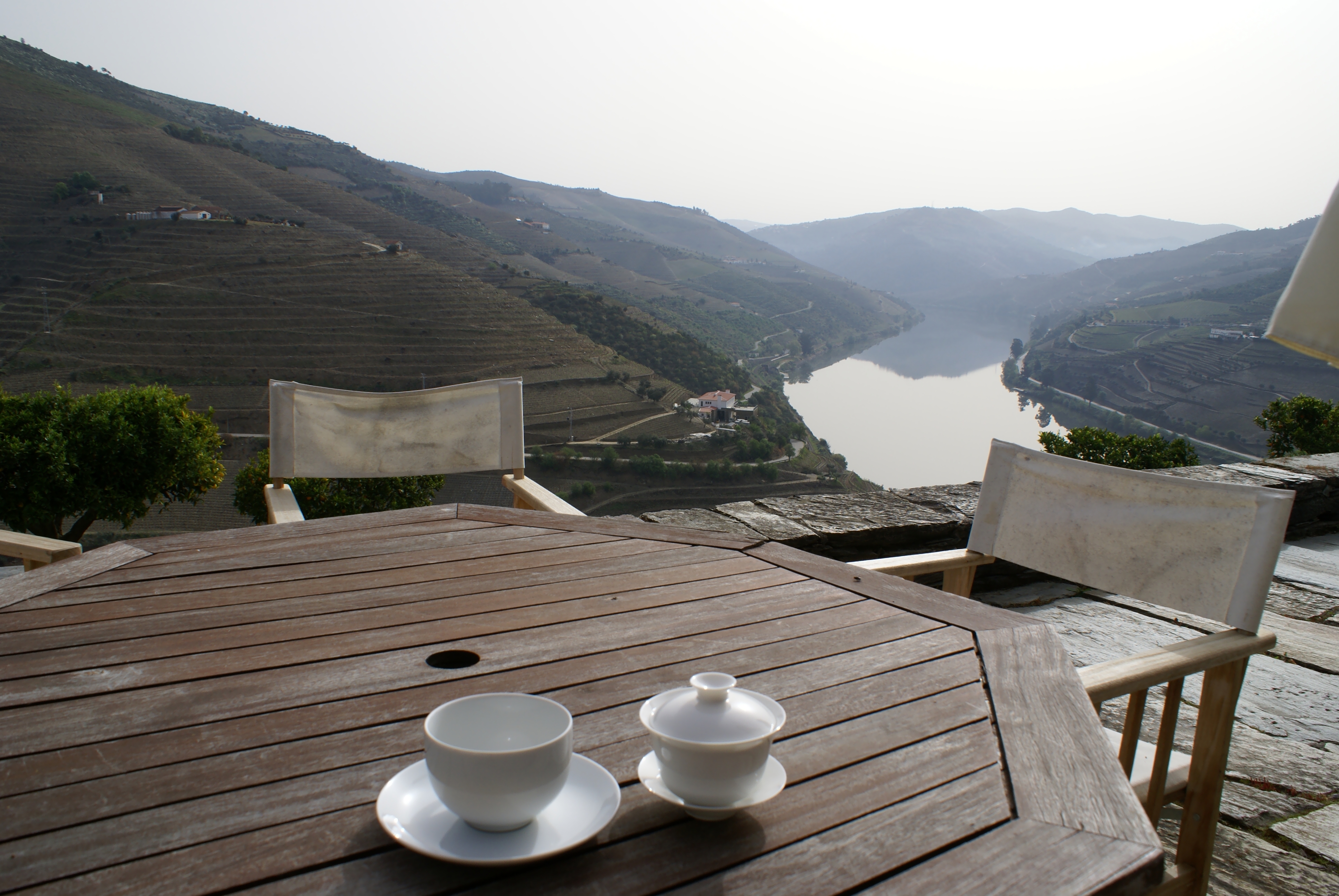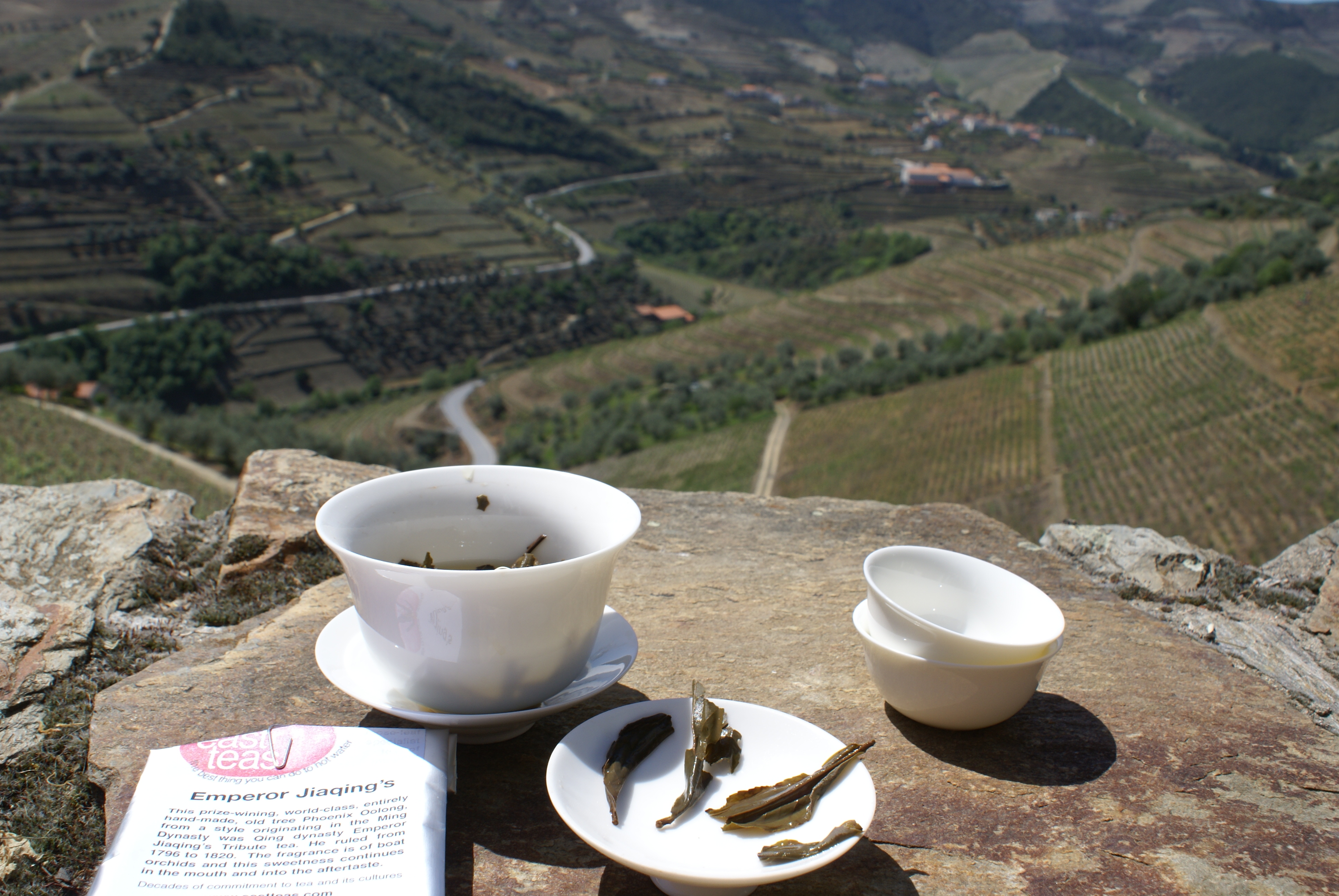In Portugal (5): Tea in the Douro
Posted on 21 April 2011
[Click here for earlier articles in this series]
I’m in Portugal for two weeks. That’s a long time away from my tea shelf. I recently blogged on drinking tea while travelling. This time, I took four different teas to enjoy in alternation and avoid the boredom. Staying at wine quintas in the Douro region of Portugal (essentially the private houses of wine producers), I’ve also enjoyed better access to hot water and more comfortable brewing conditions that I normally have in hotels. I also followed the advice of one of my readers and took a gaiwan.
The 2010 Taiwan Red I reviewed here provided a nice breakfast black tea that I could rebrew several times with consistently good, fruity results. It’s the type of tea I enjoy with lengthy country breakfast, and the Douro valley has some stunning homemade jams thag paired well with its aromas of dried fruits.
I’ve also taken a more serious oolong tea with me. The Emperor Jiaqing’s Tribute is a Chinese dancong from Eastteas, a London merchant I hold in high esteem (see here and here). I must honestly say I found this tea very underwhelming. Short brewings à la gongfucha yield a thin, dried-herby, indifferent tea. Longer infusions summon up some of dancong’s legendary fruity, flowery perfume but still seem somewhat tired and dried out. What went wrong here?
I also brought a pack of the recently reviewed 2010 Tonzawa Sencha by Fumio Maeda. Now you might think sencha is a tricky tea to make when travelling. Control of water temperature is difficult; the water quality (to which Japanese greens are more sensitive than any other tea) can also be erratic. All true, but with some efforts, good results can be obtained. I brewed this sencha at Quinta do Vale Dona Maria to offer to my hosts and through a patient cooling of the water from boiling point to approx. 60C, and a very concentrated gyokuro-like infusion, we were all spellbound.
It’s not just my tea that was imbibed. Cristiano Van Zeller of Vale Dona Maria recently returned from Hongkong with a gift box. It turned out to be a Dadugang Tea Factory shu (fermented) puer. I don’t know the details of this tea (which was labelled in Chinese exclusively and forgot to take a picture) but it is certainly a high grade, lavishly packaged in a golden silk-covered box. Luckily having a gaiwan at my disposal, I brewed this for a party of four: an excellent tea with, for a shu, quite subtle aromas without the compost-like, dead cat element, and very good bewing patience (six infusions with no diminution in power).
Brewing these teas proved a memorable experience not so much for their intrinsic qualities but for the beauty of the surroundings. Sipping Taiwanese tea on Quinta do Crasto’s beautiful terrace overlooking the dramatic Douro river valley, I was reminded of Stéphane Erler’s writings about tea drinking in the mountains of Taiwan (see here, for example). Fetching your water from a nearby source, boiling over hot coals in a traditional cast iron tetsubin, breathing the fresh mountain air elevates the whole process to an entirely new level.
Disclosure
Dancong, Taiwan Red – own purchases; sencha – gift from a tea friend. I am staying at various quintas in Portugal with my family on the producers’ invitation. Other expenses of this trip to Portugal including flights and car rental are my own.



